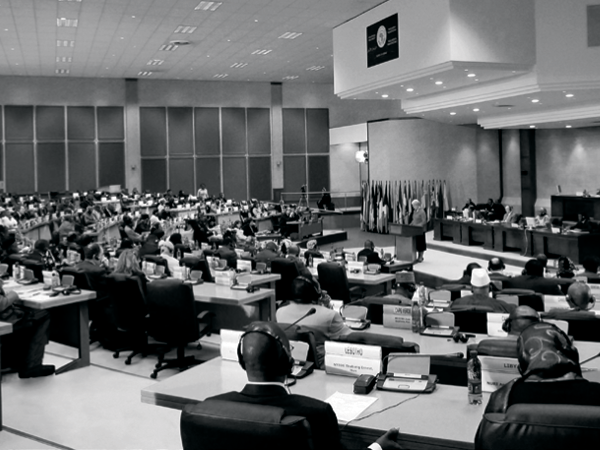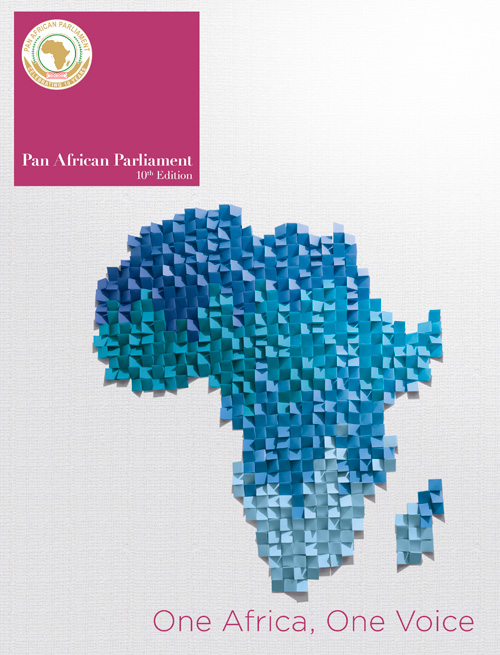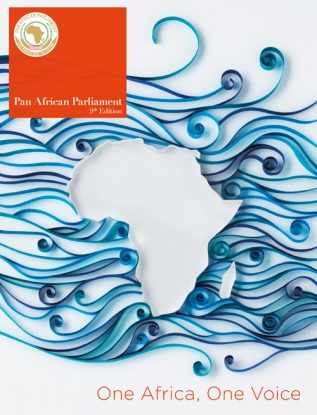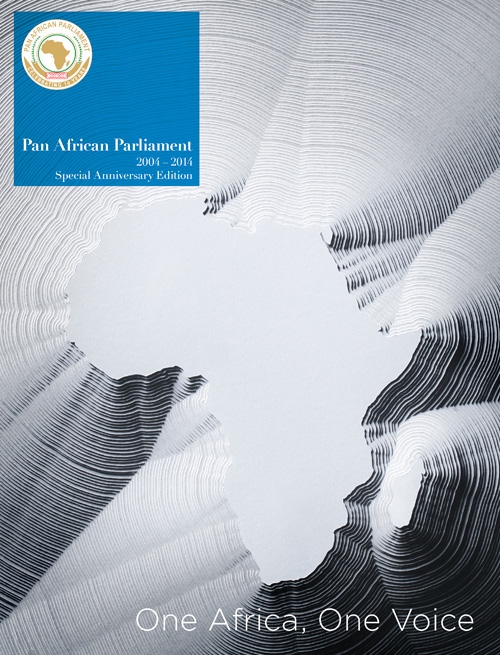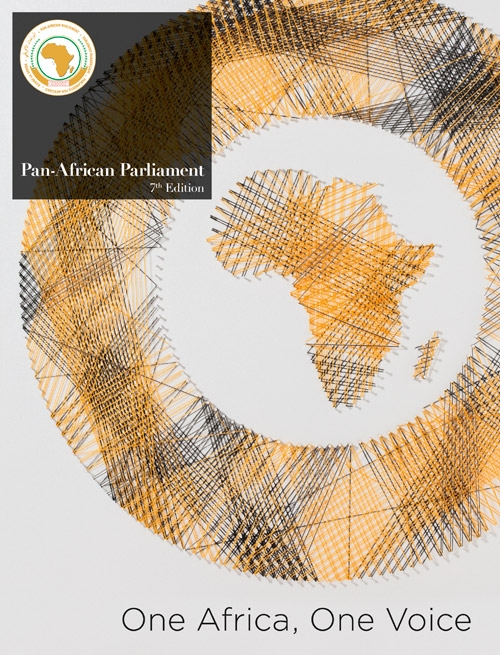
What matters to most after a democratic right to vote has been actioned, is the substance of the vote, and whether a so-called ordinary voter is able to express their preferences on the choices their governments make, both nationally and continentally. For Africans that vehicle is the PAP.
When it was inaugurated in 2004, its first President, Hon Gertrude Mongella, said that its creation was ‘a sign of democratic maturity in Africa’. Other dignitaries at the event commented that the PAP has ‘a vital role to play in protecting human rights, consolidating demo-cratic institutions, and popularising and promoting good governance’. It also ‘offers hope for a new era of transparency and accountability in African politics’.
In the pursuit of peace, justice and social transform-ation, this crucial AU instrument has prevailed for 10 years, giving a voice to grass-roots organisations, enabling them to be more involved in discussions and decision-making processes that affect Africa. In almost all respects, bar a very important one, the PAP operates much as the European Parliament (EP) does, invested in fulfilling a supervisory and scrutinising function. The difference is that the PAP does not have legislative authority.
However, this has not hindered its performance over the past decade, as witnessed in April this year when the current PAP President, Hon Bethel Nnaemeka Amadi, led a mission to Europe in a bid to strengthen the implemen-tation of the 2010 Joint Africa-EU Strategy. This initiative is aimed at growing the co-operation between the PAP and EP, to enable them to exercise increasing scrutiny over the executives and their actions. It also addresses the call for such parliamentary actions to be further enhanced to ensure democracy and transparency in terms of Africa and EU relations.
‘The importance of the role of all Parliaments in this process needs to be emphasised, and a clear distinction made between their role and the role of civil society, which is to contribute to strengthening – but never to replace – the parliamentary role. The democratically elected Parliaments of the African and European peoples remain the true representation of the will of those peoples, and the trust and belief that they have in the co-operation between the AU and the EU,’ says Hon Amadi.
Profound words considering it is precisely this role that the PAP plays across its own continent in bringing together stakeholders to engage in dialogue that affects civil society, the youth, women, political and other issues.
It is the quality of those interfaces that has provided the AU with the evidence of the wants and needs of Africans.
The PAP has, and continues, to play an instrumental role in improving the delivery of meeting the Millennium Development Goals and, equally important, the imple-mentation of the AU’s African Charter on Democracy. Adopted in 2007, the charter summarises and reconfirms African engagements on good governance architecture and, for example, allows the AU to take action in the event of an unconstitutional change of government in any one of its Member States.
When only four countries had signed the charter, the PAP introduced the 11Before2011 campaign. So successful was this that when Cameroon signed, ratification stood at 15.
Bringing together like-minded organisations to ensure Africa’s development is something the PAP does well. Memorandums of understanding (MoUs) are frequent, such as the recent signing between the PAP and the Joint United Nations Programme on HIV/Aids (UNAIDS), which calls for strategic partnership to advance sustain-able responses to HIV/Aids. Key human rights challenges within Africa are also addressed.
Yet another MoU, signed in 2007 between the PAP and the Electoral Institute for Sustainable Democracy in Africa (EISA), ensures that EISA provides technical assistance to the PAP Secretariat in the area where election observation occurs.
This was manifested when the PAP managed its first election observer mission to Kenya, thereafter continuing with EISA training to ensure the PAP’s successful election observer missions to Zimbabwe, Angola, Swaziland and Ghana in 2008.
As a collective, the PAP addresses some of Africa’s most contentious and desperate issues
Even MoUs that seem relatively small can have a huge impact, such as the one between the PAP and South Africa’s University of Pretoria (UP). It is aimed at building the PAP’s capacity in areas of development, and the harmonisation of laws in line with AU instruments.
According to the terms of the MoU, the PAP library has access to books published by Pretoria University Law Press. The MoU also allows for the placement of UP students as interns at the PAP. It further enhances the rule of law in Africa given the UP research capacity that supports the PAP’s work in the field of legal reform.
PAP workshops and conferences are often not given the accolades they deserve. Aside from its own internal workshops to discuss and share knowledge on improved performance, in the past year the PAP has concentrated on agricultural investment as well as livestock policy and pastorialism. Women have also been given a platform to respond to, and act on, gender-based violence in Africa.
Agreements have also created cornerstones for development. One was the signing between the PAP and the Interparliamentary Assembly on Orthodoxy that reflects both organisations’ belief that ‘in the modern world of major technological achievements and harsh trade globalisation, [people] have the right to pursue their future through their own cultural accomplishments, traditions and convictions’.
The PAP’s influence is felt through its campaigns, such as the continent-wide effort to promote and protect press freedom, and in its efforts to persuade African governments to abolish criminal defamation and ‘insult laws’, including those that restrict access to information and the publication thereof.
Its greatest campaign – one that has been ongoing since the PAP’s inception – is the right for legislative powers instead of acting purely as a consultative base. The PAP Protocol was submitted to AU Member States, their Justice Ministers and Attorney Generals for review in January. The PAP now stands on the brink of being able to adopt reforms and resolutions that will be life-changing for the citizens of AU Member States.
The list of PAP activities and achievements over the past decade is long and, as a collective, it addresses some of Africa’s most contentious and desperate issues. It does not shy away from dealing with conflict, food crises and terrorism.
It does not wane in its efforts to promote the rights of women and children, the elderly and the sick. It goes where it is needed and strides strongly towards a unity of spirit that is truly for the people of Africa.
By Kerry Dimmer
Images: Fuse/Gallo/GettyImages



